
Minister of Finance Nguyen Van Thang presented the Proposal on the draft Law on National Reserves (amended).
On the morning of November 17, at the National Assembly , Minister of Finance Nguyen Van Thang presented the Report on the draft Law on National Reserves (amended).
Minister of Finance Nguyen Van Thang stated that the Law on National Reserves was passed by the National Assembly on November 20, 2012, and took effect from July 1, 2013. After more than 12 years of implementation, the Law on National Reserves and its implementing documents have created a basic legal framework for implementing National Reserve activities. However, it has not yet regulated the use of national reserves to ensure social security, and has not raised the issue of comprehensively amending regulations with difficulties and inadequacies in the field of National Reserves.
In particular, implementing the Party and State's policies on organization, restructuring the apparatus, implementing decentralization, decentralization and technology development, innovation, digital transformation, a number of new laws passed by the National Assembly have contents related to national reserve activities.
Therefore, to avoid overlaps and conflicts, ensure consistency, effectiveness and efficiency in the implementation process, Minister of Finance Nguyen Van Thang emphasized the need to conduct a comprehensive review and study the promulgation of the Law on National Reserves (amended) to replace the current Law.
“This draft law regulates the management and use of national reserves to achieve national reserve goals and state management of national reserves; it applies to agencies, organizations and individuals related to the management and use of national reserves,” Minister of Finance Nguyen Van Thang emphasized.
The draft Law on National Reserves (amended) consists of 6 Chapters and 35 Articles (the draft Law has reduced 31/66 Articles compared to the current Law).
Supplementing national reserves, strategic reserves
The amended Law on National Reserves aims to inherit, amend and supplement the national reserve target, accordingly, national reserves and strategic reserves to ensure national strategic autonomy, to mobilize, exploit and effectively use the resources of the economy , and to be a market regulation tool to ensure the economy operates stably and effectively according to market rules and socialist orientation.
Regarding the state budget for national reserves, Minister Nguyen Van Thang said that the bill stipulates the contents of national reserve expenditures using reserve funds and transferring funds to the following year to comply with the State Budget Law 2025.
Regarding the strategy and national reserve list, the draft law has reviewed, revised and supplemented the principles for building strategies and national reserve resources, meeting the goals of socio-economic stability and development.
Implementing thorough decentralization and delegation of power: The Law only determines the goals, requirements, criteria and assigns the Government to regulate the list of national reserve goods and the list of strategic reserve goods to ensure flexibility and suitability to the actual situation in each period.
Regarding the management and use of national reserve goods, the draft law stipulates the authority to decide on import and export of Ministers and Heads of ministerial-level agencies managing national reserve goods.
Regarding the purchase and sale of national reserve goods, this time there are no re-regulations on the laws on bidding and auctions that have been stipulated in legal documents on bidding and auctions. The purchase and sale of national reserve goods managed by the Ministry of National Defense and the Ministry of Public Security are carried out according to specific regulations in the field of national defense and security.
Regarding the preservation of national reserves, according to the Minister of Finance, the draft law has removed the requirement that national reserves must be stored separately, and amended the management method from issuing national technical regulations on national reserves to regulations on the preservation of national reserves, ensuring the simplification of administrative procedures and facilitating law enforcement.
Regarding the management and use of strategic reserves, these are new additions. The draft law has stipulated the contents of mechanisms and principles on import, export, purchase, sale, preservation, and storage of strategic reserves and assigned the Government to specify in each period to ensure flexibility and suitability to the actual situation.
In particular, the draft law stipulates the implementation of socialization through the activities of importing, purchasing, and storing from legal sources at units and enterprises, and the State supports the costs of management, preservation, taxes, interest rates, and other support according to the provisions of law.
Along with that, the draft law has cut down unnecessary procedures, unclear authority and no additional regulations; at the same time, strongly and thoroughly decentralized and delegated power in promulgating the list of national reserve goods, strategic reserve goods, decisions on import and export of national reserve goods, regulations on preservation, technical and economic norms for import and export of national reserve goods.
Minister of Finance Nguyen Van Thang said the Government proposed the law take effect from July 1, 2026. Particularly for the provisions on strategic reserves, it is proposed to take effect from January 1, 2027.
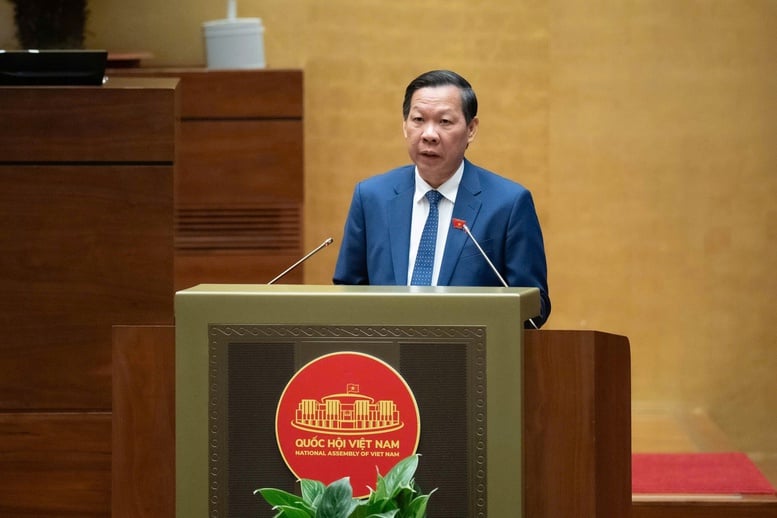
Chairman of the Economic and Financial Committee Phan Van Mai presented the report on the review of the draft Law on National Reserves (amended).
Decentralization, delegation of power, cutting 2/6 administrative procedures
Chairman of the Economic and Financial Committee Phan Van Mai presented the report on examining the draft Law, agreeing with the necessity of promulgating the revised draft Law on National Reserves.
Regarding the scope of the Law amendment, Chairman of the Economic and Financial Committee Phan Van Mai said that decentralization and delegation of power have been strengthened, and 2/6 administrative procedures have been cut. Many other procedures have been simplified. The draft has also added new regulations on strategic reserves and the socialization of national reserve activities, ensuring the spirit of innovation in law-making is thoroughly implemented.
The Economic and Financial Committee recommends that the Government continue to direct the review and completion of the provisions of the draft Law, especially new policies such as strategic reserves, socialization of national reserves and contents related to decentralization and delegation of power, ensuring feasibility and consistency.
Regarding strategic reserves, the Economic and Financial Committee recognized that strategic reserves are an important content of the draft Law, aiming to institutionalize the Party's policy in Resolution No. 39 and Conclusion 115. The regulations, especially the regulations on management and use of reserve goods in Chapter 5, have basically specified the goal of building strategic reserves.
However, to ensure feasibility, consistency and meet the requirements set out in the new context, the Economic and Financial Committee proposes to continue reviewing and perfecting regulations on: Principles of strategic reserve management; State policies on strategic reserves; list of strategic reserves, strategic reserve levels appropriate for each period; application of science and technology in strategic reserves; methods, tools and mechanisms for regulating the strategic reserve market for important resources and minerals.
Regarding the socialization of national reserves, the Economic and Financial Committee found that the draft Law has made important progress in promoting the socialization of national reserve activities, contributing to diversifying resources, improving flexibility and reducing the burden on the state budget.
However, the provisions in Article 4 on the State's policy on the socialization of national reserves currently only stop at the level of encouragement and facilitation, and do not cover the necessary support mechanisms. In particular, there is a lack of financial incentives such as taxes, credits, as well as regulations for cases of socialization associated with state secrets.
Therefore, the Economic and Financial Committee recommends that the Drafting Agency study and supplement regulations on financial and credit incentives, mechanisms for repurchasing and rotating reserve goods, risk-sharing mechanisms, ensuring the harmony of interests between the State and enterprises. At the same time, complete regulations on inspection, examination, supervision and mechanisms for mobilizing non-budgetary resources, in order to ensure the transparency, efficiency and sustainability of national reserves.
Regarding the state budget for national reserves, the Chairman of the Economic and Financial Committee emphasized that the provisions in the draft Law have many progressive points compared to the current national draft law, in line with the requirements of public financial management and improving the efficiency of national reserve activities.
To ensure completeness, consistency and feasibility, the Economic and Financial Committee recommends that the Drafting Agency continue to perfect regulations on the authority to decide on expenditures, prepare expenditure estimates and state budget content for national reserve management activities.
At the same time, it is necessary to clearly stipulate the principles and mechanisms for managing and accounting for revenue from the use of strategic reserves for business purposes to serve the goal of market regulation, clearly distinguishing between the source of expenditure for reserves to meet urgent sudden requirements and the source of expenditure to serve the goal of strategic reserves.
Nhat Nam
Source: https://baochinhphu.vn/bao-dam-tu-chu-chien-luoc-quoc-gia-su-dung-hieu-qua-cac-nguon-luc-kinh-te-102251117102023169.htm




![[Photo] General Secretary To Lam and National Assembly Chairman Tran Thanh Man attend the 80th Anniversary of the Traditional Day of the Vietnamese Inspection Sector](https://vphoto.vietnam.vn/thumb/1200x675/vietnam/resource/IMAGE/2025/11/17/1763356362984_a2-bnd-7940-3561-jpg.webp)



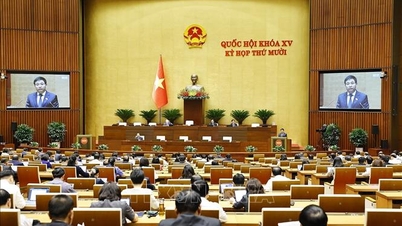




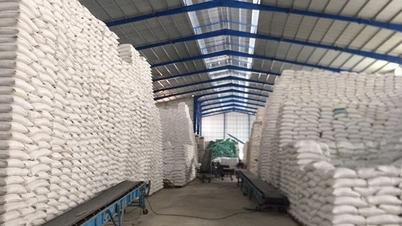
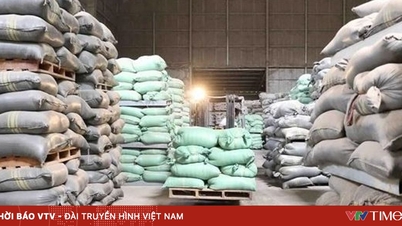

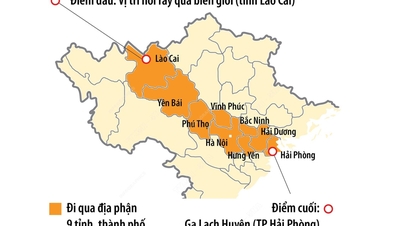











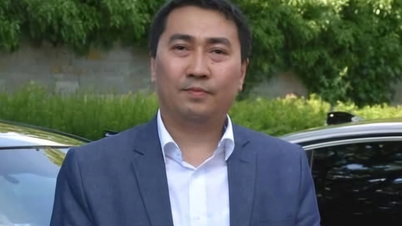


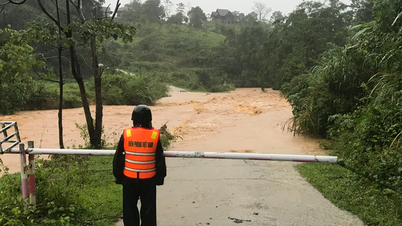




























































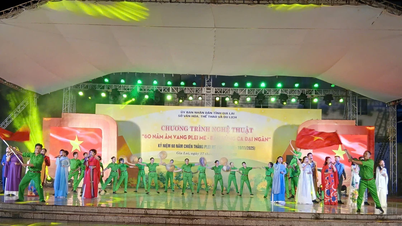


















Comment (0)